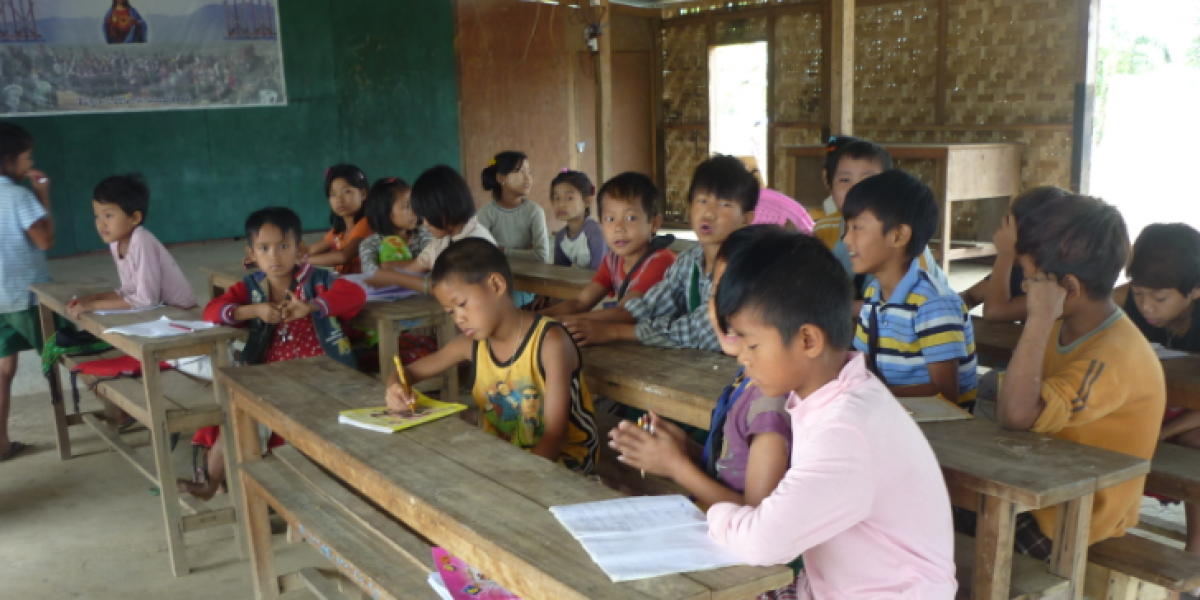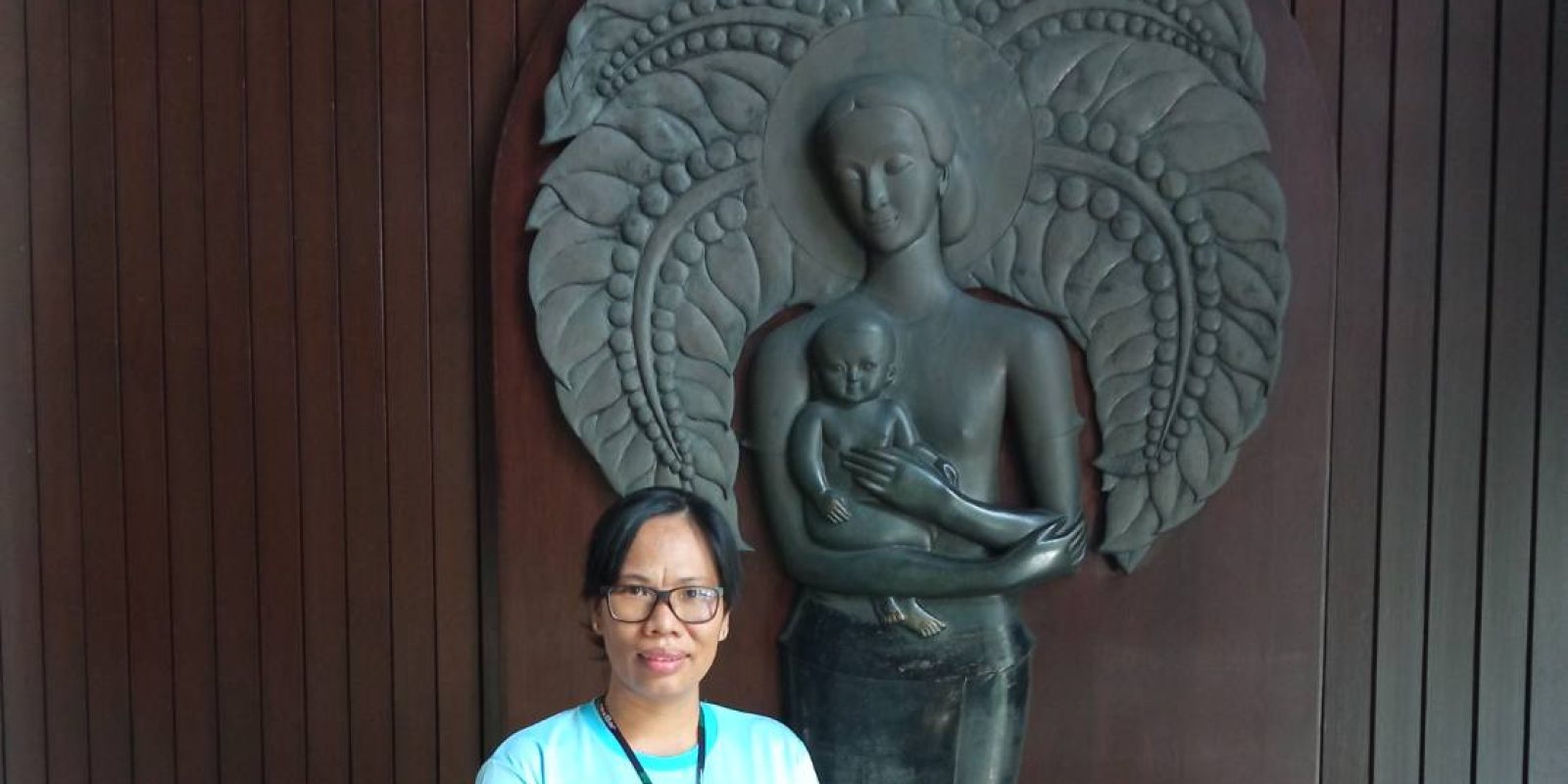Myanmar- Education in transition
12 October 2015| Irene Ho- Education Coordinator for Jesuit Refugee Service Myanmar

Education…this topic is the ‘in’ word in Myanmar as the country strives towards development. Opportunists see it as business, some improving the academic standards, whilst others focus on giving hope.
We began in 2014 by supporting secondary education to the displaced. It was not easy, because we were trying to understand the background from which these students come from. I’d say to name a few of their backgrounds they came from families displaced, in poverty, with no model of hope for the future and the normal difficulties of growing in the teenage years.
Hence, it was a whole new environment for me! Even though I have been in this country for many years.
In 2015, the physical aspect of the boarding house improved when we took over some responsibilities such as formation of personnel.
In terms of the students I engage with, I am trying to understand people of this age group and how to participate with them in the local context and culture, as these things are complex. I do this so I can intervene in an understanding, patient and proper way for effectiveness in my education role. It is difficult though as these students grew up in displaced conditions and it does affect their emotional development.
The other aspect we wanted to improve education in began with teacher training but with a longer duration than the normal two weeks or one month of training. The curriculum covered not only the teaching skills but also the development of the person. From experience, providing only the academic training seems to make the participant behave in a superior way towards others, hence making team building difficult. Again, it was about trying to discover and understand the local context so that changes can take place in the heart and hands, not remain in the head.
I still feel this aspect is going to be a long journey.
Lastly is the basic primary education. We were slightly unprepared for this as it is not a community school but an affiliated school, a branch of the government school nearby. But if changes are to take place they have to begin with the very young as they are more receptive. In the long term they can be instruments of change to their community…providing the ripple effect like waves at sea.
My experience these past two years has also been a learning process in which I make more discoveries as I continue my endeavour to understand the Myanmar young people better, respecting their culture and continuing to find ways to help them towards a better education.


